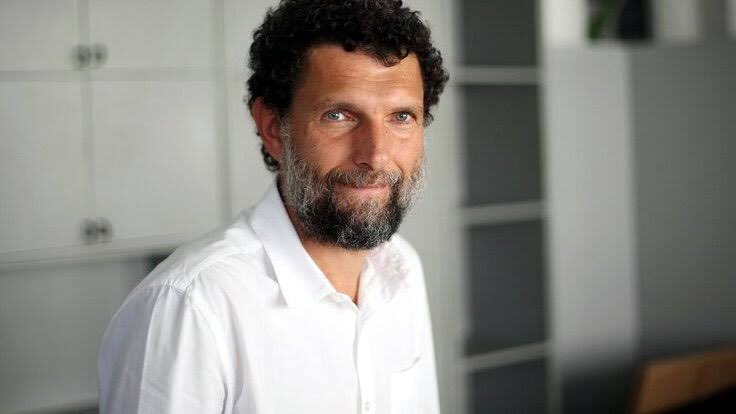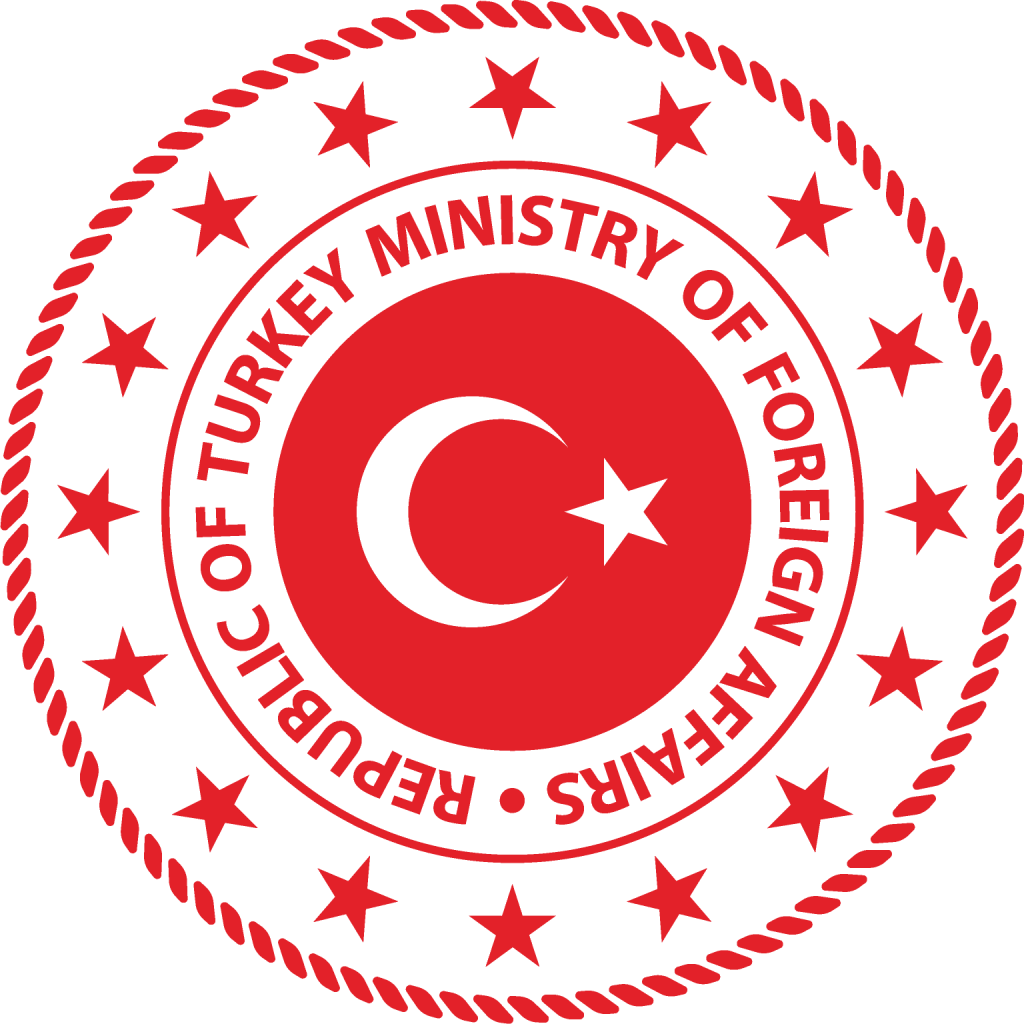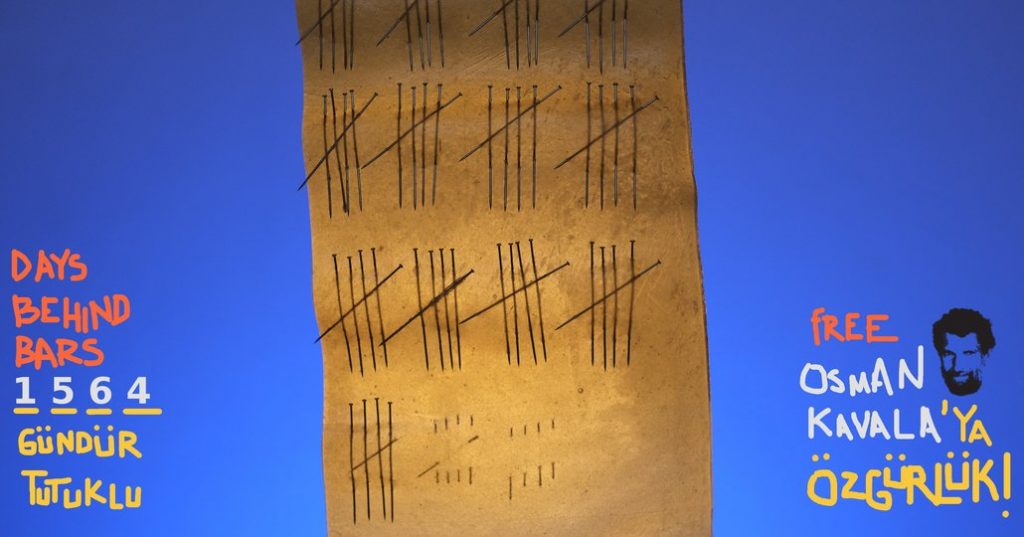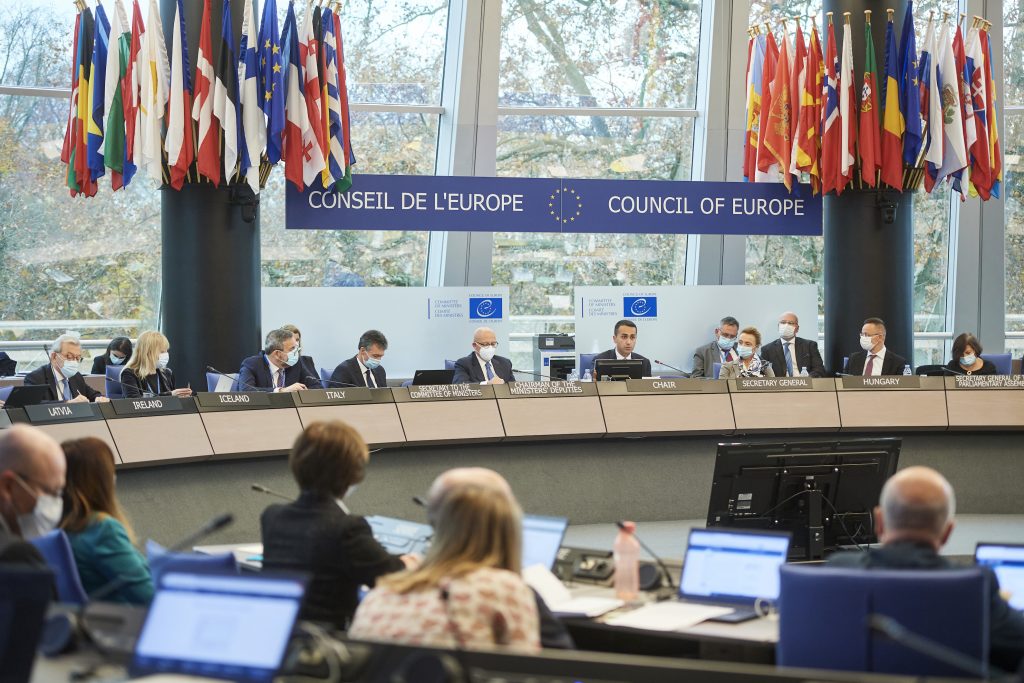The Council of Europe (CoE) has decided to launch infringement proceedings against Turkey for failing to implement a judgment of the European Court of Human Rights (ECHR). The matter will now revert back to Europe’s top human rights court to assess whether a violation has occurred.
The ECHR had ordered the immediate release of Turkish businessman and philanthropist Osman Kavala in December 2019 following his imprisonment for two years without any conviction.
After assessing the evidence, the ECHR came to the conclusion that Mr Kavala’s detention breached his fundamental rights. The court found that there is insufficient evidence that he had committed an offence to keep him detained, and keeping him in pre-trial jail is in violation of his right to liberty and security under the European Convention on Human Rights.
Mr Kavala was originally charged by the Turkish authorities with financing the Gezi Uprising in 2013. When that case was dismissed, he was then charged with supporting the attempted coup in July 2016, and the Turkish authorities then decided to re-try him over Gezi.
The Committee of Ministers of the CoE, which is responsible for overseeing the implementation of the ECHR’s judgments, has repeatedly called on Turkey to adhere to the ECHR’s 2019 Kavala ruling.
At its meeting on 2 February, 32 of the 47 members of the Council of Europe voted in favour of launching proceedings against Turkey. The vote only just cleared the two thirds majority needed for such action.
Infringement proceedings against a CoE Member Stat are rare – this is only the second time that the CoE has used such proceedings against one of its member states. The first occasion was against Azerbaijan in 2017 following its refusal to release dissident Ilgar Mammadov.
The decision against Turkey, which under its own constitution is obligated to implement the ECHR’s rulings, did not come as a surprise. The CoE’s Committee of Ministers had threatened this action back in June 2021.
Last week, a spokesperson for the Committee of Ministers of the CoE said:
“The launch of infringement proceedings is a tool rarely used by the CoE Committee of Ministers and clearly indicates the serious concerns related with the case of Mr Kavala, who has been kept in prison for years without a conviction.
“It is regrettable that the Turkish authorities have refused to execute the respective ECHR’s ruling. Such attitude sets a worrying precedent and further increases the EU’s concerns regarding Turkish judiciary’s adherence to international and European standards. It also runs counter to Turkey’s own obligations as a member of the Council of Europe and EU candidate country.”
“The European Union will continue to follow the case of Mr Kavala closely and look forward to the Court’s ruling in this question,” the spokesperson added.

Should the matter reach the ECHR and Turkey is found to be in breach of its legal obligations, the CoE can then apply a number of sanctions, including suspending Turkey’s voting rights and even its membership of the CoE.
Turkey denounces CoE decision – statement in full
The CoE’s announcement promoted an immediate rebuttal from Turkey through the Ministry of Foreign Affairs, which denounced the decision as “prejudiced and politically motivated”.
“The Committee of Ministers of the Council of Europe had adopted a decision on 2 December 2021 and notified Türkiye the intention of referring the Kavala case to the European Court of Human Rights (ECtHR) to determine whether Türkiye has executed the judgment of Kavala v. Türkiye and requested our views on the matter.
“In line with the spirit of cooperation we have displayed so far, our Government shared our views with the Council of Europe on 19 January 2022, in which we explained in detail that the ECtHR’s judgment has been executed, that Kavala’s detention was the result of another judicial proceeding and that the matter should be examined based on legal principles.
“Despite this, the Committee of Ministers of the Council of Europe adopted an interim decision today (2 February 2022) by a majority vote, that the case of Kavala be referred to the ECtHR. Thereby, the Committee of Ministers of the Council of Europe has maintained its stance that interferes with the independence of the judicial proceedings and violated the principle of respect for judicial proceedings.
“While there is a large number of judgments that are waiting to be executed by the member states on the agenda of the Committee of Ministers, which supervises the execution of the judgments of the ECtHR, constantly bringing the Kavala judgment forward on the agenda is a malicious, intentional and inconsistent approach.
“It is evident that this prejudiced and politically motivated decision, which disregards the domestic proceedings, damages the credibility of the European human rights system.
“In order to ensure effectiveness of the Council of Europe’s human rights system, the Committee of Ministers should set aside its biased and selective approach. Our expectation is that the ECtHR assesses this decision on a fair basis; and considering the pending domestic proceedings, does not act as a first instance court; and delivers its judgment in accordance with its case-law and principles, as well as the European Convention on Human Rights.”
A timeline of Osman Kavala’s arrest and detention
17 October 2017: Osman Kavala is detained.
01 November 2017: An order for Kavala’s arrest is issued. His is suspected of committing offences during the Gezi Uprising of 2013, specifically of ‘attempting to overthrow the government or to prevent it from exercising its functions’ (Article 312 of the Turkish Penal Code, TPC) and ‘attempting to overthrow the constitutional order through force and violence’ (Article 309 of the TPC).
24 December 2018: The investigation files for Kavala relating to Article 309 and 312 of the TPC are separated.
19 February 2019: The first indictment against Kavala is issued under Article 312 of the TPC, sixteen months after he was arrested
11 October 2019: Kavala’s lawyers secure a release order against the Article 309 charge.
10 December 2019: The ECHR rules that Kavala’s detention constitutes a violation of human rights and that he must be released immediately.

18 February 2020: Turkish court acquits Kavala for offences relating to Article 312 of the TPC.
19 February 2020: Despite a trial and acquittal, Kavala is not released. Instead he is re-arrested on a fresh charge under Article 309 of the TPC.
09 March 2020: Kavala has another order for his arrest, this time charged with espionage under Article 328 of the TPC.
20 March 2020:A Turkish court issues a second release order in favour of Kavala, dismissing the charges under Article 309. However, he remains in detention due to Article 328’s espionage charge.
03 September 2020: The Committee of Ministers of the CoE, which is responsible for overseeing the implementation of ECHR judgments, ruled that the 2019 ECHR judgment on Kavala’s release needs to be executed immediately.
29 September 2020: The Constitutional Court of the Republic of Turkey is set to examine Kavala’s application regarding his unlawful detention. However, this is postponed following the submission of the second indictment against Kavala, relating to charges under Articles 309 and 328 of the TPC, to the court on the same day.
29 September 2020: On the same day, the Committee of Ministers of the CoE discussed Kavala’s case again and rule that an interim decision should be drafted, to be issued should Turkey again fail to execute the ECHR judgment.
03 December 2020: The Committee of Ministers of the CoE issue an interim decision that Kavala should be released immediately and that the Turkish Constitutional Court should examine the file in accordance with the ECHR’s judgment without further delay.
15 December 2020: Turkey’s Constitutional Court examines Kavala’s application on his unlawful detention and rules that the file be referred to the General Assembly of the Constitutional Court.
18 December 2020: The 36thAssize Court rules that Kavala’s detention will continue. A second hearing is scheduled for 5 February 2021.
29 December 2020: Turkey’s Constitutional Court rules by 8 to 7 votes that earlier decisions in the Kavala case do not constitute any violation of his rights. The reasoned judgment includes strongly dissenting opinions of the judges who voted that the detention does constitute a violation of rights.
22 January 2021: Turkey’s Appellate Court overturns Kavala’s acquittal in the Gezi trial. The Court rules that the file concerning this trial shall be examined together with Kavala’s case relating to charges under Articles 309 and 328 of the TPC.
28 January 2021: Following the quashing of the acquittal decision, the 30thAssize Court issues a preliminary proceedings report and schedules Kavala’s trial for 21 May 2021, where he will face all charges.
05 February 2021: A hearing at the 36th Assize Court rules that Kavala’s trial shall be consolidated with the Gezi Trial (Article 312), which will be heard again in the 30thAssize Court, and that the detention of Kavala on espionage charges under Article 328 of the TPC shall continue.
30 April 2021: After a fresh examination of Kavala’s detention, the 30thAssize Court rules that he should remain on remand.
12 May 2021: The Committee of Ministers of the CoE reviews Kavala’s file during its weekly meeting and expresses ‘great concern’ that the Turkish courts have not taken the necessary steps to end Kavala’s detention, which goes against the ECHR judgment. The Committee urges Member States to bring up Kavala’s continued detention and demand his immediate release during their meetings with Turkish officials. The Committee notes that the detention of Kavala will be reviewed again by the 30thAssize Court on 21 May 2021, and urges the Turkish authorities to take all the necessary steps to ensure Kavala is released.

21 May 2021: At a hearing at the Istanbul 30th High Criminal Court, the court rules that Kavala’s arrest on espionage charges should continue. It also orders that the Gezi file about the çArşı group be examined in consideration of a possible merging of the cases and be sent back to the court.
09 June 2021: The Committee of Ministers of the CoE announce that it will bring infringement proceedings against Turkey in the event of its continued failure to implement the ECHR ruling on Kavala, whose ongoing imprisonment was against international law.
28 July 2021: The Presiding Judge of the İstanbul 30th High Criminal Court is temporarily appointed the Presiding Judge of the 13th High Criminal Court during the judicial recess, and gives consent to his own prior request in May 2021 for the merging of cases.
02 August 2021: Four days before its scheduled hearing, the İstanbul 30th High Criminal Court rules by a majority vote that Kavala’s case be merged with his ongoing case at the İstanbul 13th High Criminal Court and that he remains detained.
17 September 2021: The Committee of Ministers of the CoE decides to delay imposing sanctions on Turkey over its failure to implement ECHR rulings for Osman Kavala and Selahattin Demirtaş, the jailed former Co-Chair of the Peoples’ Democratic Party (HDP), and reiterates its call for Kavala’s release.
02 February 2022: The Committee of Ministers of the CoE announce they are launching infringement proceedings against Turkey.
[The Kavala case timeline above was adapted from a version that appeared on Bianet.org ]




